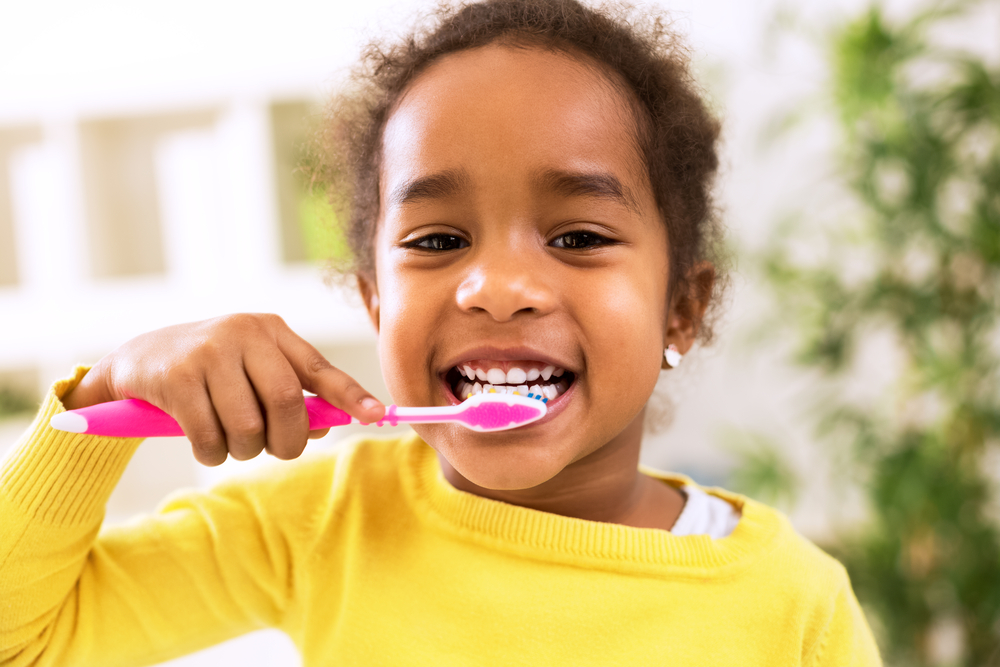Signs It’s Time To Replace Your Dentures
Dentures can be life-changing for those who have lost some or all of their natural teeth. A good quality denture can restore your ability to eat, speak, and smile with...

If your child’s dentist recently told you that they require a root canal, it’s likely your mind was instantly flooded with questions and concerns. Tooth decay doesn’t only affect adults, and children are just as susceptible, if not sometimes more, to decay that can turn into the need for a root canal treatment.
This guide will help answer any questions or concerns about your child’s upcoming procedure and what you can do to make the process as smooth as possible for them.
Also known as “endodontic treatment,” root canals are designed to remove bacteria and dead, or dying, tissue from deep inside a tooth.
The affected area is known as the “tooth pulp,” and it’s the most vital part of the tooth. Originating in the tooth’s center beneath the enamel layer, the tooth pulp comprises living items, including blood vessels, large nerves, and connective tissue.
A root canal treatment is necessary when the tooth pulp is infected to avoid removing the tooth. During a root canal, your dentist will use small tools to access the inside of the tooth, clean it and eventually place a crown over the top of the tooth.
Root canals can be done at any age, and they can be performed on both primary and permanent teeth. Most often, root canals are needed when damage is extensive. There are times when having a root canal is necessary to avoid permanently losing a tooth. Here are some examples of cases where a root canal is a good and necessary choice for either a child or an adult:
When caring for a child after a root canal procedure, it’s normal for them to experience pain, tenderness, and mild swelling. There are a few main reasons behind your child’s mouth feeling tender or sensitive, including:
Swollen or Inflamed Tissue
Even though your child’s dentist has removed the nerve root from the tooth, there are still small nerves in the ligaments and tissues surrounding the tooth. When this area is inflamed, such as after a dental procedure, these nerve endings can also register discomfort and create the tissue around the gums to remain swollen or inflamed.
Instrument Damage
Sometimes the dental instrument used to clean out the root canal inadvertently damages the sensitive surrounding tissue, causing a patient to feel discomfort afterward.
High Temporary Filling
When the dentist inserts the temporary filling, if the filling is even just a little higher than the surrounding tooth, it can cause the mouth to bite harder on that spot, making the tooth sore and sensitive.
In typical cases, patients’ sensitivity and discomfort after a root canal should subside within a few days.
Most people report feeling minor sensitivity or tenderness for a few days after having a root canal. Modern technology and anesthetics make root canals no more painful than having a cavity filled.
The pain you felt from a severe toothache before treatment will be easily remedied when the damaged tissue is removed through the root canal procedure, allowing your pain to be treated quickly and comfortably.
Most root canals are successful with minimal patient discomfort, but there are cases when a root canal is unsuccessful, and a person can end up experiencing more pain.
Signs of a failed root canal may include:
Pain. With standard root canal treatment, your child may feel some pain in the days following the procedure. However, if their pain lingers for more than a few days, or if the tooth begins to feel better, only to have re-emerging pain days later, it can be a sign that there is a bacterial infection.
Swelling. Facial swelling or swelling inside the mouth that occurs days after your procedure may be signs of re-infection and should be addressed by your dentist as soon as possible.
Pus or Fluids. Experiencing any discharge from the area around the treated tooth may indicate that re-infection has occurred and an abscess has formed. Contact us if you notice any discharge.
After their procedure, your child’s dentist will send you home with instructions for pain management and how to care for their tooth while their body recovers until their follow-up visit.
Help to take care of their mouth by:
For more information on what to expect after your child has their first root canal treatment, contact Aubrey Baudean, DDS, today.